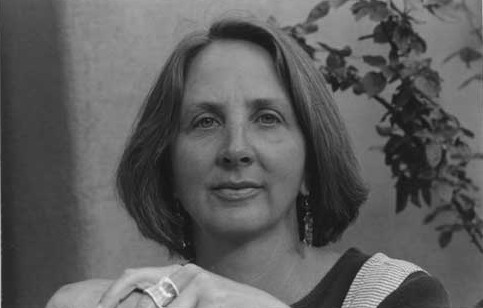Difference between revisions of "Patti Bushee"
Rlschlittler (talk | contribs) |
Rlschlittler (talk | contribs) |
||
| Line 23: | Line 23: | ||
Elected November 1994 | Elected November 1994 | ||
| − | Reelected 1996, 2000, 2004 | + | Reelected 1996, 2000, 2004, 2008 |
Revision as of 13:09, 2 June 2008
|
Patti Bushee Born July 5, 1959 Santa Fe City Council Santa Fe, New Mexico 15,000 constituents |
Career Overview Appointed 1992 Elected November 1994 Reelected 1996, 2000, 2004, 2008
|
Sante Fe was a site of one of the Japanese-American internment camps during World War II. In her first term, Patti Bushee initiated a proposal to establish a memorial marker on a hill that overlooks a park where the camp once existed.
Interview with Patti Bushee for Out and Elected in the USA
Q: Tell me about being an openly gay elected official where you are.
A: For me, the “openly gay” part comes from just being honest about who I am. In fact, when I was first working here to get a human rights act passed to include sexual orientation in New Mexico, a reporter with one of the newspapers, without ever asking, just assumed that any of us who were working for these human rights issues were gay. So, he did his article and put my name in and just said “gay activist” or “lesbian activist” or something, and that was my so-called outing publicly in this community. I had never hid it and had never been ashamed or afraid to just express who I am. With politics the way it is up here in northern New Mexico the local weekly newspaper, when I was first appointed, did emphasize that I was openly gay.
I’ve been here going on 20 years. It is my choice of home after college and I feel very rooted here, in fact, I probably speak better Spanish than most of those I serve with.
Q: What are the demographics like?
A: I guess you might say that unfortunately for some of those who are from here, the tide did turn a few years back and the demographics shifted. It is no longer a Hispanic majority in Santa Fe, it’s about 49-51 now. Demographics are always changing here. This is one of those southwestern places that people want to be and move to, and what you experience here is much more of a struggle as we go into the new millennium and the demographics continue to shift. It is a little bit more of angst, or growing pains for the local community – “local” being a euphemism that is always applied here and usually means local Hispanics – families that can almost all point back to their shields and family names that came from Spain and who came through Mexico and made their way up here. It’s a really interesting and lovely mix of people, but in the Santa Fe City and County proper, when you look at politics, any stresses and strains are around whether or not the local Hispanics are able to stay in some of those seats of power.
Now, there is a big distinction made here between Spanish and Mexican. And there is a little bit of a derogatory attitude toward Mexicans. The group of people that came here long ago really want to align themselves with their Spanish heritage. This is New Mexico, but Santa Fe itself has enormous pride in its Spanish heritage.
Q: How are some of the ways these tensions play out in your work?
A: I thought it might fall flat on it’s face and maybe blow up here, but some of this came up when I pushed for a resolution that would keep our police officers from spending their time aiding and abetting INS agents. Obviously we are a community that is made up of a certain amount of Mexican immigrants – Mexican nationals – that live here amongst us. We employ them whether we do so overtly or inadvertently, but they are a part of our community, their children are attending our schools. What I had hoped for was a dialogue. In fact, the same night we passed a hate crimes ordinance for Santa Fe, and so the very same night, I had groups of people that were the disenfranchised, the down-trodden the even the physically attacked. As the DA had said to me, the biggest population that had hate-crimes perpetrated on them was the Mexican nationals – and so, the whole night was with those two pieces of legislation. We had a very good dialogue and they both passed unanimously, which I hadn’t expected. After that we put together a task force to deal with the Mexican national and immigrant populations that we have and to make sure they were not being abused in their work places and to make sure that all those human rights issues are addressed. That night I was very proud to be on the governing body to be able to send the kinds of messages that we were sending – that we were embracing of the real, true diversity that we have here in Santa Fe. Sometimes it can be divisive when you are that diverse and not just one homogenous community.
Return to Out and Elected in the USA index • Go to next article
